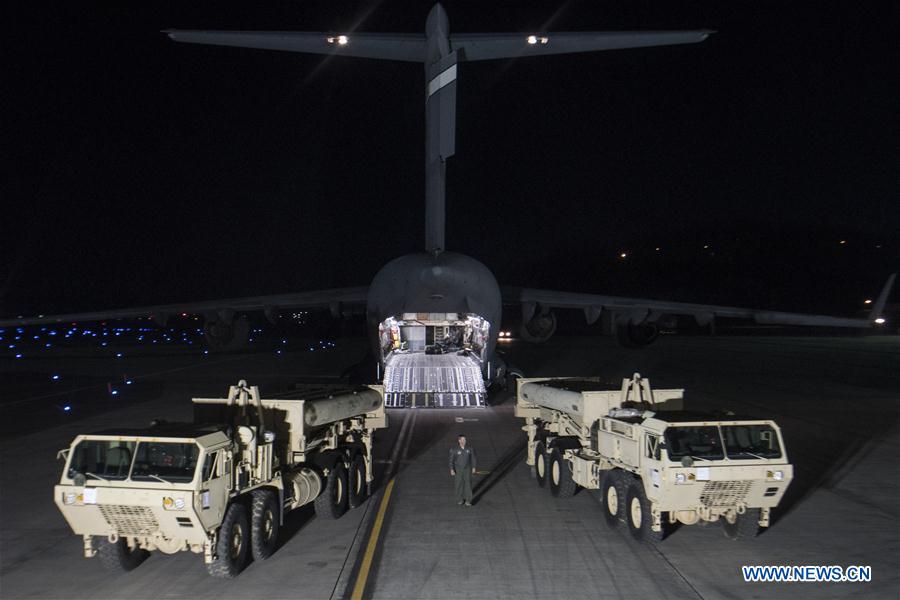Withdrawing the US anti-ballistic missile defense system from South Korea will be a deciding factor in the peninsula peace process, Chinese observers said Monday, while calling the system "a ticking bomb" that menaces the hard-won positive atmosphere.

Photo taken on March 6, 2017 shows a part of Terminal High Altitude Area Defense (THAAD) battery arriving in South Korea. The photo was provided by the US Forces Korea (USFK). (Photo:Xinhua)
Kim Eui-kyeom, a spokesman for the South Korean presidential Blue House, said last week that "US troops stationed in South Korea are an issue regarding the alliance between South Korea and the US. It has nothing to do with signing peace treaties," citing President Moon Jae-in, Reuters reported.
The Blue House statement reportedly responded to a column by South Korean presidential adviser Moon Chung-in, in which he argued it would be difficult to justify the presence of US forces in the country if a peace treaty were signed.
Currently there are 28,500 US military personnel and their families stationed in South Korea, and Seoul soured Sino-South Korean ties by agreeing to deploy the US Terminal High Altitude Area Defense (THAAD) system in 2016.
The US-South Korean military alliance was forged during the Cold War, targeting security concerns from the North, as well as the once Soviet Union-led socialist camp, Song Zhongping, a military expert and TV commentator told the Global Times on Monday.
Song said that the existence of the alliance as well as the THAAD system would become completely outdated once the missile threats from Pyongyang cease to exist and the peace settlement comes into shape.
The deployment of THAAD in the region will not aid peacekeeping but only break the regional military balance for the US, Lü Chao, a research fellow at the Liaoning Academy of Social Sciences, told the Global Times. The system puts at risk the national security and interests of countries in the region including China and Russia, he said.
The missile defense system was a "ticking bomb" that could destroy peaceful development on the peninsula, Lü said.
Both experts agreed that Beijing's presence was a must in peninsula peace talks.
To keep outcomes effective in the long term, Beijing will unwaveringly hold its consistent stance on issues regarding the US system and make no concessions with its voice surely backed by Pyongyang during the talks, they said.
Removing United Nations Command should also be highlighted in talks to put a full end to the Korean War, Song said.
US President Donald Trump has reportedly ordered the Pentagon to draw up plans for reducing US troops in South Korea ahead of his summit meeting with North Korea leader Kim Jong-un, the New York Times reported on Thursday.
Lü regarded the reports as part of Trump's bargaining tactics to pressure Seoul to shoulder a bigger share of the cost for US troops stationed in the country. It was unlikely the US would give up its base and privileges, he said.


